
Top marks for Greek coronavirus management from TIME magazine
Like most of the international press, the magazine attributes the country’s success to sweeping restrictive measures that began well before those of other European countries.
Spotlight
-
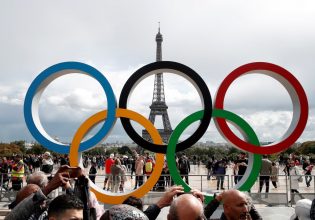
Ολυμπιακοί Αγώνες: Η μάχη για το χρυσό μετάλλιο στις… τιμές των ενοικίων
-

Οικογένεια τουριστών στο Πήλιο κινδύνευσε από την κακοκαιρία - Φούσκωσε ο χείμαρρος και ειδοποίησαν το 112
-

Εύρημα σκελετού παιδιού με σφαίρα στο κεφάλι - Τη γόμα και το μολύβι του, δίπλα
-

Πέθανε ο Αλέξανδρος Πέρρος, γνωστός «ροκάς» της Θεσσαλονίκης
In a length investigative report published on 21 April TIME magazine has lionised Greek authorities for the country’s spectacular success in drastically limiting the spread of coronavirus and keeping the death toll extremely low (116 at the time of writing).
The article, published on the magazine’s website, begins with a description of one of the government’s most painful decisions, maintaining the lockdown through Easter weeks, a time when in previous years passengers in well over 100,000 automobiles leave Attica for their ancestral homelands in the provinces.
“This year authorities monitored churches, enlisted street patrols, and deployed drones to enforce strict bans on movement amid a plethora of other measures taken to prevent the spread of Covid-19.
The authors note that experts say that both the stringency of those measures and the way Greeks have largely abided by them have been key to Greece avoiding the worst ravages of the global pandemic, and that Greece is second only to Italy in the percentage of elderly people in the population.
Success despite ravages of financial crisis
The article describes how the struggle to combat the pandemic is being waged against the backdrop of the economic destruction wrought by the decade-long economic crisis.
“[Greece’s] health sector has been ravaged by austerity, and its crippled economy is still nearly 40% smaller than it was in 2008, before the last global financial crisis. Officials said in 2019 that, after three bailouts and drastic cuts to its public healthcare system due to austerity, there were only 560 ICU beds in the entire country of 11 million. (That’s 5.2 beds per 100,000 people, compared to Germany’s 29.2.)”
The piece also noted the turnaround of the Orthodox Church of Greece which enforced the lockdown during the high holy days of Easter week and in general despite saying at first that one could not possibly contract the virus from Holy Communion as it is the true body and blood of Christ.
Indeed, clerics who expressed that view on television news programmes were not challenged by journalists, who privately said that the scientific facts were presented in other interviews.
The right mix of measures
Like most of the international press, the magazine attributes the country’s success to sweeping restrictive measures that began well before those of other European countries.
“In late February, before a single death from the disease had been recorded, carnivals were canceled. Schools, cafes, universities and most other businesses were ordered closed on March 5, when there were just 31 confirmed cases in the country.”
TIME opines that the sorry state of Greek hospitals after many budget cuts imposed by creditors in the bailout memorandums was a key factor as it caused alarm and necessitated early action to avert a collapse of the fragile public health system, which indeed was bolstered with the addition of ICU beds and the hiring of hundreds of doctors and nurses to address serious staff shortages.
Strong praise for Mitsotakis
The article extols the resolve of Prime Minister Kyriakos Mitsotakis, who announced a general lockdown on 22 March, after schools and universities had already been shut down, and who cited neighbouring Italy’s tragic situation to rally the public behind the restrictive measures, and quotes one of his several nationally televised statements:
“In Italy unfortunately, one person is lost every two minute. We have to protect the common good, our health.”
At the time, there were 624 confirmed cases and 15 deaths in Greece. By comparison, when the U.K. announced its own lockdown the same day, it had 6,650 confirmed cases and at least 335 deaths,” the report notes.
Effective public information campaign crucial
Noting the daily, nationally televised coronavirus developments briefing by Sotiris Tsiodras, an epidemiologist who heads the health ministry’s 19-member coronavirus committee and advises the PM, TIME attributes Greece’s success in large measures to a massive, effective public information campaign (for which the government has shelled out a whopping 11mn euros).
“The government also began daily television broadcasts about the situation, warning citizens that the weak healthcare system meant harsh measures had to be implemented early in order to save lives, even if the economy was hit hard.”
“The government also used the lockdown to increase healthcare capacity, growing the number of ICU beds from 565 in early March to 910 at the end of the month. And an agreement between the Greek government and private hospitals means they have begun taking on patients with non-coronavirus-related ailments, freeing up space for Covid-19 patients in public hospitals,” the magazine reports.
The special challenge of migrant camps, unequal care
At the same time, the article slams the squalid conditions in migrant camps where it sees a higher risk of infection.
Competent authorities say they are keeping tabs and that the threat is minimised due to the low average age of refugees and migrants and the fact that they had the physical stamina and endurance to make the long and arduous journey to Europe.
“But just like everywhere else, the virus and the lockdown are colliding with longstanding inequalities. That means that even as Greece performs well compared to other countries, many of its inhabitants are more at risk than others. That’s especially true when it comes to the five refugee camps on the Greek islands, where around 40,000 people are held in legal limbo in squalid conditions,” it reports, noting that only three doctors have been assigned to meet the needs of 19,000 refugees and migrants at the Moria camp on Lesvos.
It notes that although there have been no cases of Covid-19 on islands (where the vast majority of migrants are kept) two camps on the mainland have been put under quarantine after 44 cases were confirmed among migrants being held there and that about 150 people were diagnosed as positive at a hotel in the Peloponnese town of Kranidi.
Dire economic impact, the challenge of borrowing
TIME stresses the dire impact that the pandemic will have on Greece’s already battered economy.
It stresses that two sectors that contribute heavily to the country’s GDP – tourism (“11.7 percent directly but as much as 30.9 percent when indirect income is included”) and international shipping – will be hit exceptionally hard.hile the government has brought in stimulus measures to shore up businesses during the lockdown, the country’s high debt to GDP ratio means it might be difficult for the country to continue borrowing if the crisis stretches into months or years.
Ακολουθήστε το in.gr στο Google News και μάθετε πρώτοι όλες τις ειδήσεις






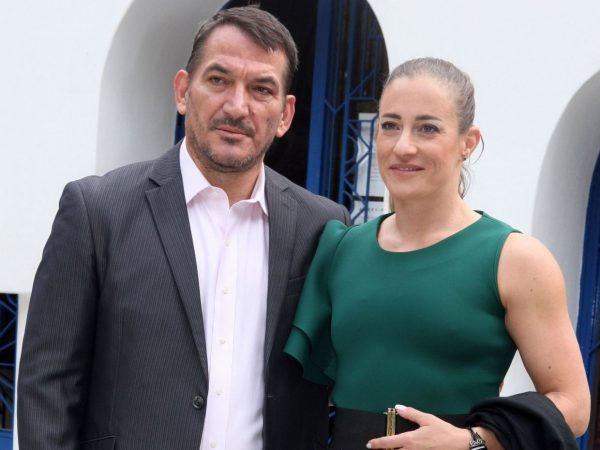
![Bitcoin: Εγένετο halving- Πού θα εστιάσουν οι επενδυτές [γραφήματα]](https://www.ot.gr/wp-content/uploads/2024/03/ot_bitcoin222-300x300.png)


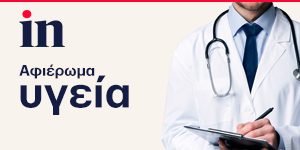


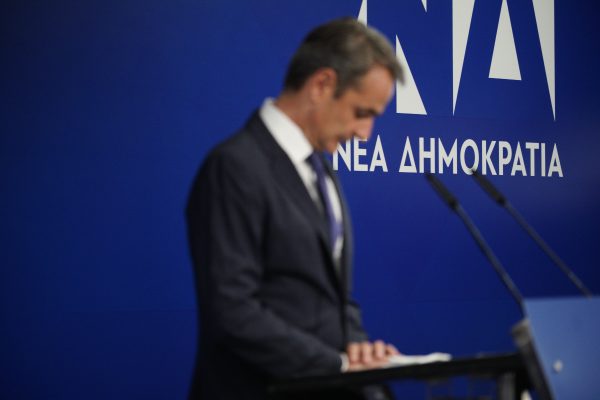










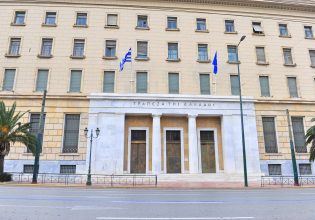



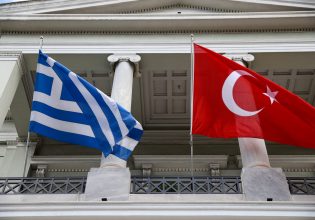










 Αριθμός Πιστοποίησης Μ.Η.Τ.232442
Αριθμός Πιστοποίησης Μ.Η.Τ.232442